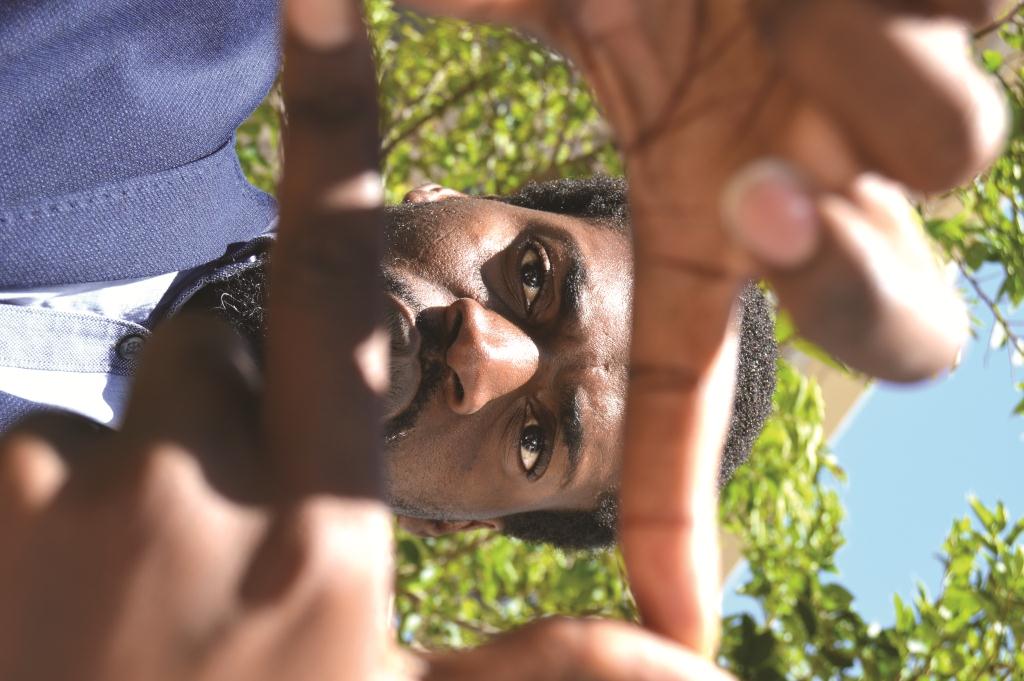You could argue Davison Mudzingwa and Francis Hweshe picked the right business at the wrong time.
“Poor funding, falling numbers in theaters and improving technologies are some of the reasons affecting the film industry in Africa,” says Hweshe.
We share a pizza after the premiere of Lost Tongue, their documentary on a disappearing language of the Kalahari Desert, on a winter evening at The Bioscope, in the Maboneng Precinct, in Johannesburg.
Hweshe and Mudzingwa are all smiles as it sold out and attracted positive comments from the tough film crowd. But the joy of the night fades like the closing credits with thoughts of the rough, hard and unpredictable road ahead.
Their life story is woven into their Lost Tongue film. They too, as second-language English speakers from Zimbabwe, suffer lost language, lost identity, and lost money.
Loading...
“Funding is difficult to come by and if you wait to get money, you will not make a film. Every filmmaker should be prepared to empty their own pocket,” adds Hweshe.
Mudzingwa, the director, says filmmaking is even riskier than fashion.
“You have to bet on your instincts that people will like it. Most African filmmakers put so much on the art of producing and forget the business element,” he says.
What makes the documentary industry even tougher is that in Africa, where often the best films are made, fewer and fewer are going to the cinema.
“We are making films with universal themes that someone in Afghanistan, Spain and United States can watch,” laments Hweshe.
On this night the documentary was about a subject closer to home.
Lost Tongue was one of the 10 documentaries from around the world screened at the Socially Relevant Film Festival in New York in March. It cost the filmmakers more than $250,000 over three years. They will never get their money back.
The film, a debut feature presented by South African-based Mvura Ya Afrika Productions, explores a story of hope and revival of the ancient and endangered N|uu language of the marginalized Khomani San people of the Kalahari.
“A cultural and spiritual journey reveals the battle through time in the language going extinct. Today, the fight continues with new conflicts against time, with the number of surviving people who can speak the language diminishing,” says Mudzingwa.
Steven Markovitz, film producer and distributer, agrees. He says money is as important as a camera in this business.
“Documentary film is a tough business. There is need to marry sustainability and passion, which is the great approach to this and every other sector.”
Markovitz, who has directed over 100 films in 14 years, says no matter what happens, he will never leave the trade and has handed it down to his 17-year-old son.
“Most people do film for money and not passion, each time you embark on a project you should finance it from scratch.”
He puts the case for more investment.
“The strength of the film industry covers a lot of disciplines and these may include carpentry, accounting, artistry and creative jobs. Film that travels and has impact in the world has a profound effect on the public,” says Markovitz.
Nigeria is an African country seeing a boom in the film industry. It is the third largest national film industry in the world, with estimated annual revenue of $590 million. According to the Nigeria Bureau of Statistics, the film industry’s share of Nigeria’s GDP is at 1.4%.
The problem is, just like Mudzingwa and Hweshe, Nigerian filmmakers are failing to sell beyond Africa. With piracy also taking its toll, fewer and fewer filmmakers are making money.
As long as there are stories to tell, Mudzingwa and Hweshe will keep telling them until their pockets are empty. While many keep complaining that African stories are the domain of outsiders, here are two young African filmmakers telling African stories.
By the end of this year, this African story of the Lost Tongue would have travelled to the United States, South Africa, Tanzania, Canada and Spain. Lets’ hope it finds its tongue on the international stage.
Loading...
